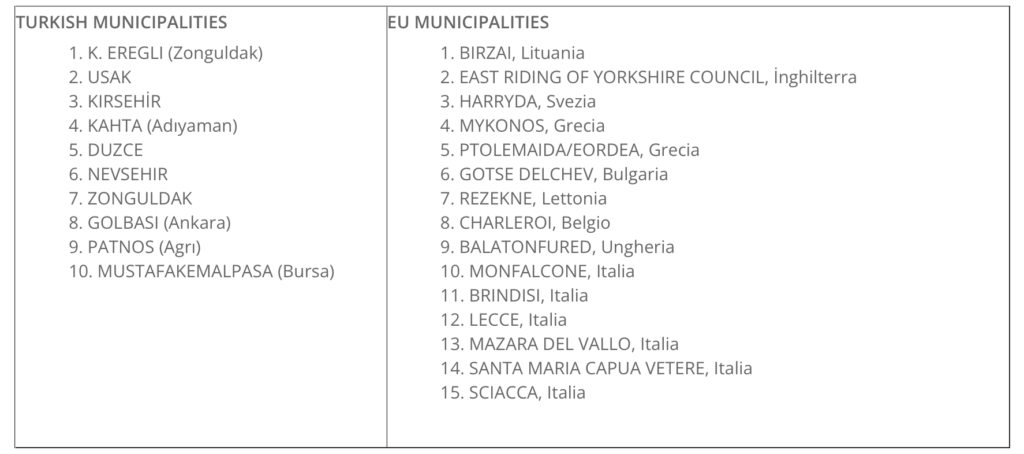The members of the Governing Board of Asael, the Association of municipalities of Aragon Region (Spain) that was dissolved in late 2009 swept away by a scandal, former President Jesus Alone in the head, will be liable personally for debts left.
ALDA, with its other partners, decided to take legal action on the basis of the Spanish Law on Associations (the “Ley Organica 1 / 2002, de 22 de marzo, reguladora del Derecho de Asociacion).
“We are forced to choose the legal way -said Antonella Valmorbida, Director of ALDA-because all our efforts to resolve the issue amicably have not been successful. The Aragon institutions we questioned, as Asael was an association of local authorities, ignored our calls or answered that the issue does not concern them. A rubber wall has been raised around Asael and its administrators that were all mayors of Aragon towns”.
But the Spanish Law on Associations is clear and says that administrators are responsible of debts of their Association debts, caused by malicious reasons, and also for culpable negligence, and that they have to pay with their personal assets.
“It’s clear-stated the Director of Alda, AntonellaValmorbida- that during the Sol management of Asael, in recent years none of the administrators has exercised effective control, to avoid accumulating debts and that European funds were not used for the purpose for which they were assigned to Asael, to support project activities”.
The projects were developed in the years 2008-2009 and were Bandair, Emanzipar and Eclau. The other ALDA members partners of the project managed by Asael were the province of Reggio Emilia (Italy), the City of Bydgoszcz (Poland), Baltisfem (Lithuania), the Local Councils’ Association, Association of Municipalities (Malta), the Institute of Enterpreneurship, an NGO (Greece), the Association for the development of mountain communities (Bulgaria).
The credit of ALDA and its partners amounts around to 115.000 (ALDA 30,180, City of Bydgoszcz 31,000, Baltifem, 24,000, Institute of Enterpreuneurship, 9,700, Province of Reggio Emilia 9,000, Association for Development of Mountain Municipalities, 9,000, Local Councils’Association, 1,800).
This is an amount of money that Asael has to pay to its partners for activities under the project, personal taxes, social contributions. Some of them could have lots of serious financial difficulties if they will not be paid.
“We believe that the situation has been largely overlooked bye very one here in Aragon – still says the Director of ALDA, Antonella Valmorbida – by the risk that it may have in relations with the European Community. The Commission’s representative office in Madrid is aware of what happened and shares our position. TheCommission’s anti-fraud office is investigating possible embezzlement of which has been discussed in newspapers in the region. We are willing to go all the way to guarantee our rights, and we believe that it’ll be hard that any other European project could have partners entities such as the Aragonese Famcp, one of which vice president is the current President of Asael, whose responsibilities, if not for Sol’s management facts, is now due to elude any response.”
Asael’s former partners do not understand how institutions and political forces in Aragon do not exercise all is in their power to success fully resolve the issue, which also includes former employees of Asael remained without payment.
“We know that the former president of Asael, JesusSol, was very close to the President of PAR, Jose Angel Biel, who is vice president and spokesman of the regional government, and that the majority of members of Municipality member of Asael were led by mayors of the PAR. Can the PAR, which will celebrate its congress in the next days – still says Antonella Valmorbida – ignore the moral issue internally? And do the other parties in government and in the opposition not have the heart to safeguard the image of the region of Aragon in Europe? And how do they believe that, at the upcoming May elections, they can nominate again those outgoing mayors responsible for this failure?”
These are questions which the public of the region should demand answers, because the ethics of elected representatives and the institutions they governed has been called into question.
“We regret being forced to give public evidence of this situation – concluded the Director of ALDA, AntonellaValmorbida-but silence would be complicit in unlawful conduct. And we are even more regretful for the thirty years of history of Asael, its efficient staff and the president himself Sol, who we always had, until these facts have emerged, a very good account on. Asael was our partner and Sol was a member of our Board. It’s a real shame that things have had this outcome.”
